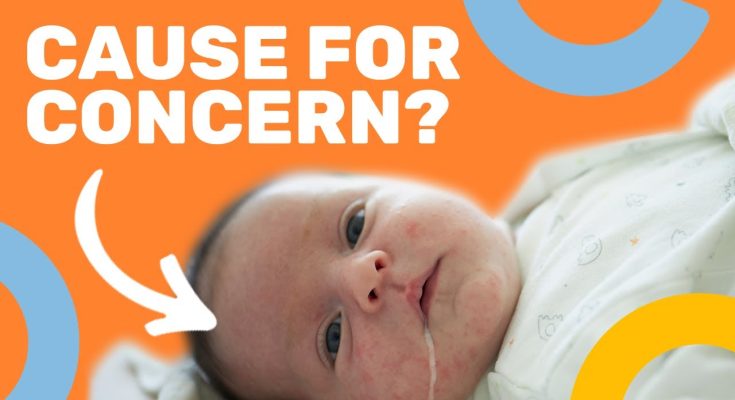Babies are fascinating little beings, but they often do things that can leave new parents puzzled—or even worried. From strange movements to unexpected sounds, newborns exhibit many behaviors that seem unusual but are actually quite normal. However, there are times when certain behaviors could signal an underlying issue. Here are six weird baby behaviors that scare new parents, along with when to just relax and when to seek medical advice.
1. Sudden Jerky Movements (The Startle Reflex)
Why It Happens:
Also known as the Moro reflex, this is a normal reflex that newborns have in response to sudden sounds, movements, or even the sensation of falling. When startled, babies will throw their arms and legs out, sometimes with a little gasp or cry, before curling back in.
When to Relax:
- This reflex is completely normal and typically disappears by 3-4 months.
- Swaddling your baby can help reduce the frequency of startle reflexes during sleep.
When to Be Concerned:
- If your baby does not show this reflex at all, or if only one side of their body reacts, it could indicate nerve or muscle issues.
- If the movements seem extreme, repetitive, or don’t go away by 6 months, consult a pediatrician.
2. Shaky Hands or Quivering Chin
Why It Happens:
Newborns have immature nervous systems, and their little bodies are still learning how to regulate muscle control. This can cause trembling hands, quivering chins, or even occasional leg jitters.
When to Relax:
- If the shaking happens briefly during crying or stretching, it’s normal.
- It should decrease as their nervous system matures, usually by 3 months.
When to Be Concerned:
- If the trembling happens frequently and not just when crying, it could be a sign of low blood sugar or neurological issues.
- If shaking turns into stiff, jerky movements or seizures, seek medical attention immediately.
3. Crossed Eyes or Wandering Eye
Why It Happens:
Babies are born with weak eye muscles, and it takes time for them to coordinate their vision. In the first few months, it’s common for babies to go slightly cross-eyed or have one eye wander off momentarily.
When to Relax:
- Occasional crossing or drifting of the eyes is normal in the first 3-4 months.
- As babies gain better muscle control, their eyes should align properly.
When to Be Concerned:
- If your baby’s eyes are consistently misaligned past 4-6 months, it could indicate strabismus (a condition where the eyes don’t work together properly).
- If one eye seems to turn in or out often, consult a pediatrician or pediatric ophthalmologist.
4. Strange Breathing Patterns
Why It Happens:
Newborns have irregular breathing because their respiratory system is still developing. They might breathe fast, then pause briefly, then resume normal breathing.
When to Relax:
- If the pause is less than 10 seconds, it’s normal.
- If their breathing evens out within a few moments, there’s no need to worry.
When to Be Concerned:
- If your baby stops breathing for longer than 10 seconds, especially if they turn blue or seem limp, seek emergency medical help.
- If they have persistent grunting, flaring nostrils, or chest retractions (where the ribs pull in with each breath), this could indicate respiratory distress.
5. Hiccups After Feeding
Why It Happens:
Hiccups are caused by involuntary contractions of the diaphragm, often triggered by feeding too quickly, swallowing air, or changes in stomach temperature.
When to Relax:
- Hiccups are harmless and common in newborns.
- Most babies don’t seem bothered by them, and they usually go away on their own.
When to Be Concerned:
- If hiccups interfere with feeding or sleep, it may indicate acid reflux (GERD).
- If they are persistent beyond 12 months, check with a doctor.
6. Sleep Twitching or Sudden Movements During Sleep
Why It Happens:
Babies spend a lot of time in active sleep, a phase where they experience rapid eye movement (REM). During this stage, they may twitch, jerk, or even make sucking motions.
When to Relax:
- Light twitching or random movements during sleep are normal and mean your baby’s brain is developing.
- These movements usually decrease as their nervous system matures.
When to Be Concerned:
- If your baby has repetitive, rhythmic movements that seem uncontrollable, it could be a sign of seizures.
- If the jerks are stiff, accompanied by staring spells, or don’t stop when touched, seek medical evaluation.



